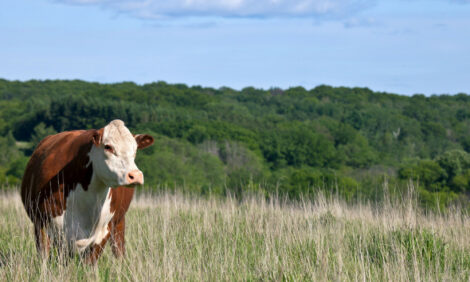



Influence Feed: Lettuce tell you about the farm bill
Stay current on the latest food and agriculture issues impacting your business with Influence Feed by Zoetis. Influence Feed tracks the top 1,500 most influential voices across all segments of food and agriculture to bring you insights in a convenient bi-weekly report.Subscribe to Influence Feed to receive more content, in-depth analysis and links to source materials at www.InfluenceFeed.com. It’s free and offers content that is not available anywhere else.
1 Farm Bill:
The U.S. House of Representatives Committee on Agriculture approved the Agriculture and Nutrition Act of 2018 (aka the Farm Bill) on April 18, sparking numerous responses. National Pork Producers Council President Jim Heimerl applauded the move and National Cattlemen’s Beef Association President Kevin Kester urged support for the foot-and-mouth disease vaccine bank. However, Rep. Chillie Pingree (D-Maine) penned an article for Civil Eats calling the draft of the Farm Bill a “fiasco,” arguing instead for a bill that “helps to alleviate hunger, promotes growing agricultural markets, and encourages environmental stewardship.” In addition, National Farmers Union opposed the bill: “The farm safety net does not reflect the current state of the farm economy.” Food & Environment Reporting Network (FERN) editor Chuck Abbott reported that international trade, commodity prices and farm income have far outstripped the farm bill in farmers’ minds. Jerry Hagstrom wrote (PDF) in The Hagstrom Report, “Behind the scenes, the situation is messy and getting messier.”
2 Romaine E. coli:
A widely publicised outbreak of E. coli attributed to romaine lettuce from the Yuma, Arizona, growing region persisted in headlines during this period, following warnings from the CDC and FDA. Because specific growers had not been named, food safety attorney Bill Marler asked, “Are FDA and CDC Warnings Helping or Hurting?” In Food Safety News, Richard Raymond, MD, charged, “Why not write recommendations as to how FDA, in conjunction with the much ballyhooed Food Safety Modernization Act, could reduce the contamination rates for green leafy vegetables that are not meant to have cooking as a final kill step? … The government needs to use its resources to attack the number one source, green leafy vegetables, and not some meat product, pork chops, that are basically one of the safest that we have.” James Hamblin of The Atlantic suggested, “The utility of this story may be to jolt us out of complacency about the kinds of risks we come to accept as background noise.”
3 Trade With China — Sorghum:
On April 18, China added a 179% preliminary duty on U.S. sorghum, a cereal used largely in livestock feed, claiming that U.S. sorghum farmers were dumping product to lower the price. Agriculture Secretary Sonny Perdue responded, “This is clearly a political decision by the Chinese. … As we explore options, we are in communication with the American sorghum industry and stand united with them.” Modern Farmer added, “To tax sorghum could immediately rupture an entire sector.” Reuters reported on April 19 that at least five ships carrying sorghum to China had changed course. National Sorghum Producers stated, “U.S. sorghum is not being dumped in China. … Today’s decision in China reflects a broader trade fight in which U.S. sorghum farmers are the victim, not the cause.”
4 Research:
An alliance of 16 universities — including Cornell, Iowa State and Texas A&M — launched a campaign on April 18 to increase agricultural research funding in the 2018 Farm Bill. The group, FedByScience, emphasised, “The [United States] is falling behind on agricultural research. China surpassed our nation in public agricultural research in 2009, and today is outspending the U.S. by nearly 2:1.”
On April 23, Council for Agricultural Science and Technology (CAST) released “Scientific, Ethical, and Economic Aspects of Farm Animal Welfare,” which examines the “conflicting values” of animal welfare and animal rights. Meatingplace cited (login required) Purdue University professor Candace Croney: “They need more transparency in terms on what and how animal welfare policies get set, who is setting them, what role consumers and interested members of the public have in making their voices heard — all of which is going to require different mechanisms that we don’t really have in place right now.” The report also called for additional research funding.
5 Rose Acre Recall:
On April 13, FDA announced a voluntary recall of more than 206 million shell eggs from Rose Acre Farms in Indiana. The recall stemmed from an outbreak of Salmonella Braenderup that led to 22 illnesses across nine states. Food Safety News noted that Rose Acre had switched to cage-free hen houses in 2015. Meanwhile, Food & Water Watch Executive Director Wenonah Hauter decried the recall as “Another example of how the ultra-consolidated factory farm system can have major consequences for food safety.” Phil Lempert, aka SupermarketGuru, offered alternatives to eggs in the meantime, while lamenting that “This comes on the heels of eggs finally losing the reputation of being bad for you.”
| TheCattleSite News Desk | Read more Zoetis News here |



